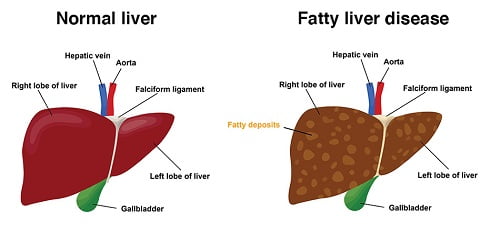Fatty Liver Disease
Treatments
Fatty Liver Disease
Fatty liver disease, also known as hepatic steatosis, is a condition characterized by the accumulation of fat in the liver cells. This can lead to inflammation and scarring of the liver over time, potentially leading to more serious complications if left untreated. Understanding the causes, symptoms, and treatment options for fatty liver disease is crucial for managing and preventing its progression.
Symptoms

Fatty liver disease often presents with few or no symptoms in its early stages. However, as the condition progresses, individuals may experience:
1. Fatigue
2. Weakness
3. Abdominal Pain
4. Enlarged Liver
5. Jaundice (yellowing of the skin and eyes)
Diagnosis
Fatty liver disease is often diagnosed through:
blood tests, imaging studies such as ultrasound or MRI, and sometimes a liver biopsy to assess the extent of liver damage.
Treatment

Lifestyle Changes
Adopting a healthy diet low in sugar and saturated fats, exercising regularly, and maintaining a healthy weight can help reduce fat accumulation in the liver.

Limit Alcohol Consumption
For individuals with alcoholic fatty liver disease, reducing or eliminating alcohol consumption is essential.

Medications
In some cases, medications may be prescribed to help manage underlying conditions such as diabetes or high cholesterol.

Regular Monitoring
It's important for individuals with fatty liver disease to have regular check-ups with their healthcare provider to monitor liver function and assess for any progression of the disease.
Prevention
Preventing fatty liver disease involves adopting a healthy lifestyle, including:
.Eating a balanced diet:
Focus on whole foods such as fruits, vegetables, lean proteins, and whole grains.
Exercising regularly:
Aim for at least 30 minutes of moderate-intensity exercise most days of the week.
Limiting alcohol consumption:
For those who drink alcohol, moderation is key.
Avoiding fad diets:
Rapid weight loss can actually worsen fatty liver disease, so it's important to aim for slow, steady weight loss if needed.


